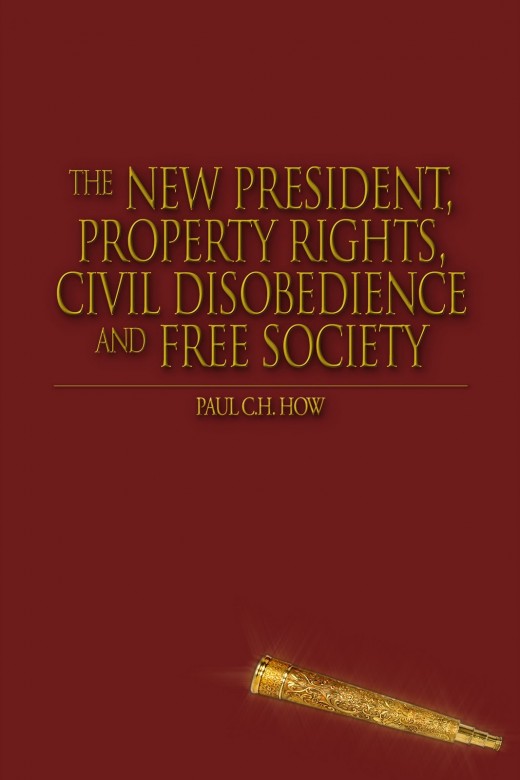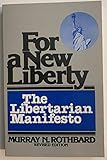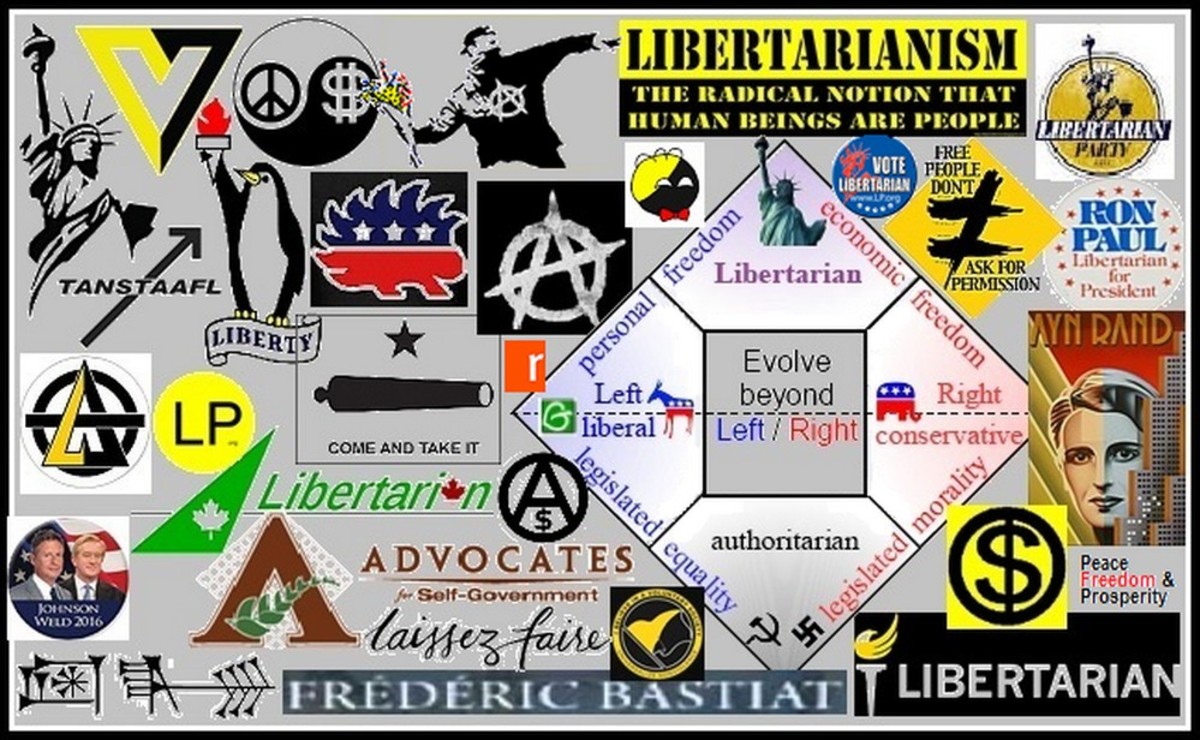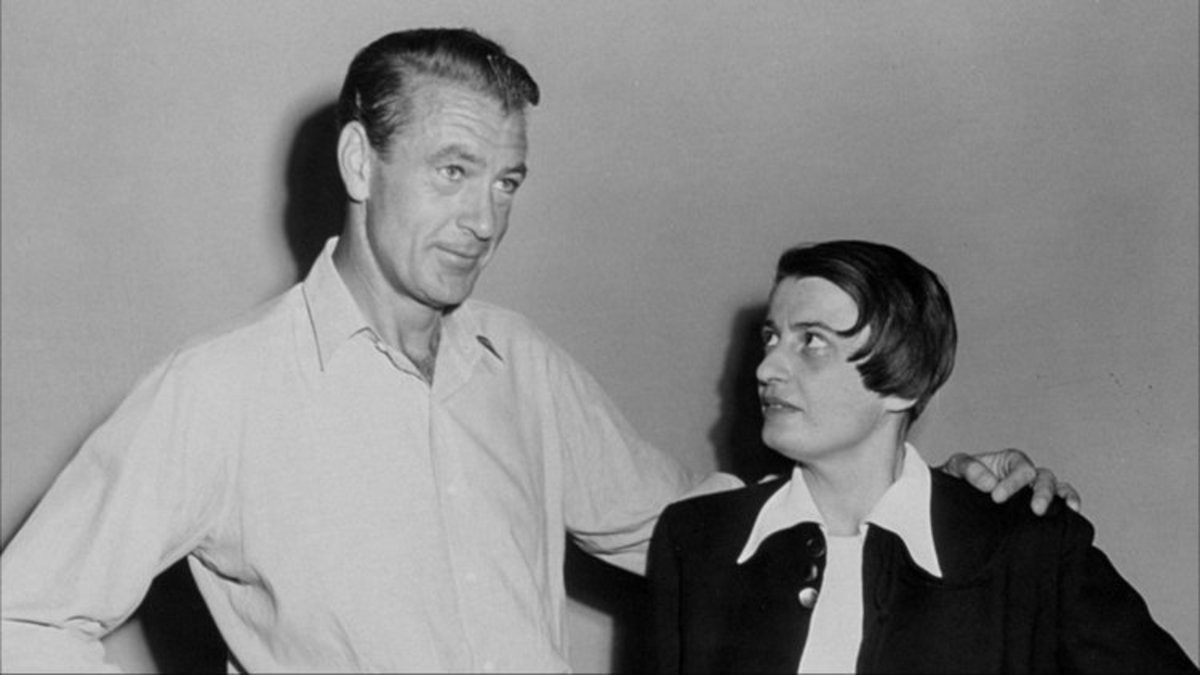Top 10 Libertarian Books (or at least might make you interested in it)
Why did I choose these books?
First of all, these books are very close to my heart and lead me to the political philosophy that I have now learned to love: libertarianism. It is the political philosophy that espouses the non-aggression principle that states that you have sovereignty over your life and your body and that you can do as you wish for as long as you are not infringing on the liberties of others and no one person or group of persons should ever have the power to take that away from you.
There are many different kinds of libertarianism, all with so many different take on different issues (something I've already discussed in my response to Jeffrey Sachs critique of libertarianism) but I am not here to discuss that or to promote any kind. My main purpose is to share these books to the world. Hopefully, even at least one of you will choose to buy at least one of these books (some of them are available legally for free online) and somehow change your mind about the status quo of statism.
I figured it would be best that before I talk about my list of top 10 libertarian books, I should expound on my very short description/definition of what libertarianism is all about by presenting this introductory video on what the philosophy of liberty is:
The Philosophy of Liberty
Now that you have an idea on what libertarianism is all about, it's time that we get started on the books on this list. Take note that some of them are not entirely libertarian, but, as I have said, may lead you to be interested in learning more about libertarianism. Of course, these aren't objectively the top 10 best in the world. There is no consensus on what the top 10 books are, of course, and these are merely based on my own personal preference. As many libertarians will say: to each his own.
Anthem by Ayn Rand
This is the first ever book that somehow introduced me to the importance of individual liberty. It's really entirely libertarian and many will argue that her other books are more fitting to this list (like Atlas Shrugged for example). For me though, it's a nice introductory book because it doesn't heavily smother you with libetarianism; it is more subtle. Of course, the more aggressive books can instantly raise the defenses of those drunk on the dogma of statism.
It is a story of one man struggling in a collectivist and primitivist dystopian society. It is a first person point-of-view kind of story because it is narrated supposedly through the journal of the protagonist.
It is one of my ultimate favorite books ever and it seriously changed my life. It really makes you appreciate freedom. It's also very short and easy to read. It's a very engaging page-turner. I highly recommend this one.
How an Economy Grows and Why it Crashes by Peter Schiff
Don't be scared of the title. This isn't even heavy on hardcore mathematical economics stuff. in fact, it's full of pictures and even reminds me of a children's book. That being said, it is one of the easiest books to read that promotes voluntary exchange and explains the reasons for the housing bubble and the recession. This is something that most of you think happened because of too much deregulation when in fact, as this book explains, it is the meddling of the government with the market that creates cronyism or crony capitalism (something most of you think is capitalism itself).
It is a story of three people who live in an island, an allegorical representation of how economies work, and as the title suggests, how it crashes. Making it into a sort of children's book is very good for those who are lazy to read or learn more about libertarianism. I actually finished this book in one sitting after getting locked out of my house and got stuck in a bookstore.
Peter Schiff was one of Ron Paul's economic advisers and, along with Ron Paul of course, they've been predicting and warning about the housing bubble and recession many years before it happened and no one listened. They even laughed at them and became marginalized in the community of economists. So if they actually predicted the recession and no one listened then maybe it isn't lack of regulation that caused the recession or the housing bubble. Don't you think that maybe there's something about this "free market" Peter Schiff and Ron Paul are talking about if they correctly predicted the recession? At least it's worth a look at for sure, right? Here's a video of Peter Schiff (there are tons more on YouTube) predicting the recession:
The Anti-Capitalistic Mentality by Ludwig Von Mises
I feel so blessed to have been introduced to Ludwig Von Mises and many other classical liberals. This book, The Anti-Capitalistic Mentality was lent to me by a fellow Filipino libertarian (HubPages prohibits me from linking more than twice to just one website and since I've already linked my blog on Blogger twice, you can check out my friend's blog at filipinofreedomfighter09.blogspot.com).
This book just has this deep grasp of human psychology and behavior and explains why people hate voluntary exchange or free trade and why it is so easy for anyone to be statist or socialist or even communist. Aside from that, it has wonderful criticisms of Marxism and Keynesian economics.
I remember reading photocopies of this book, much like readings that schools give out for homework, only this time I wasn't bored and I was really so enlightened. It changed my views on so many things. It explained everything from careers to money to literature. I even believe that it's so ahead of its time. Mises has this amazing grasp of how things are and hopefully many more will listen to the things he has written about.
I then lent the copy I had to my half-sister's husband who is an economics professor in Ateneo De Manila University. It's so sad when you see people with Phd degrees in economics and yet have never heard of Mises. I am yet to receive a reply from him. Perhaps he just ignored the book or maybe it's also because my half-sister hates me.
If you do not want to buy the book, a PDF version is available here in the Ludwig Von Mises Institute website.
Economics in One Lesson by Henry Hazlitt
This is a book that I wish every person would read, most especially economists. Unfortunately, Keynesian economics is the status quo and it is sad that those with masters or Phd degrees on economics usually worship the myths written by John Maynard Keynes. Aside from that, even those who are not economists have these statist assumptions about economics; "folklore economics", I would call it. And it is so sad that the Austrian School of Economics is many times marginalized or ignored (in spite of instances like the one I wrote abotu Peter Schiff where free marketers warn about collapses or recessions).
Again, if you do not want to buy the book, the PDF is available here.
This book just tackles so many misconceptions about economic policy like taxation, tariffs, government spending, etc. And the reason I would love economists to read it is because this one of the books that actually converted Walter Block into libertarianism so I assume that hopefully it could change the minds of other economists as well. Here's Walter Block talking about what he thinks about this book:
Defending the Undefendable by Walter Block
Now that we're already talking about Walter Block, the next book on the list is something he wrote called Defending the Undefendable. It takes on the taboo topics like prohibition of drugs or prostitution or gambling, acts that are technically voluntary and are "victimeless crimes". Obviously, one thing that really attracted me to libertarianism is its positions on stuff like this most especially the prohibition of and the war on drugs. This book explains it all ever so eloquently.
Aside from prohibition it also takes on tons of other issues like libel, insider trading, blackmail etc. As I have said, I can only link to a website twice, but if you do not want to buy the book, the PDF version is available over at the Ludwig von Mises Institute website.
Revolution: a Manifesto by Ron Paul
Of course, what would this list be without Ron Paul. This is the first ever Ron Paul book that I finished (I technically didn't read it because I listened to it via an audiobook). Not only does it take into account the flaws of big government in the US but also how it is so unjust and immoral in general for any other country. I really learned a lot about how subsidies distort market prices and actually makes things worse. There are always unintended consequences and I learned this from Ron Paul. Obviously, Ron Paul is the one who introduced me to libertarianism and is the leading person in the world who's changing the minds of individuals everywhere into embracing liberty.
This is my favorite book of his although I am tempted to just fill this whole list with other of his wonderful books like Liberty Defined, even if I do disagree with some of the things he says in that book, he will never impose his own beliefs on me and promote liberty for all.
One thing you can count on about Ron Paul is consistency. A friend once asked me "how sure are you that Ron Paul will not just do this or that blah blah blah" and I reply with 30 years of consistency. There is, of course, his voting record (record on voting in legislation while in congress, he always voted against legislation that threatened liberty like the Patriot Act, Unjust pre-emptive wars, the infamous SOPA, etc). I will write about this soon in my blog. I'm really compelled defend my position on "how sure" I am about Ron Paul. Even when he was laughed at and booed by the Republican party members during the 2008 presidential debate in South Carolina, he stood by his principles. That shows a lot about his consistent and principled integrity. I can't even put into words how much I love guy as much as I've been trying so hard in my blog.
Just one of the many examples of Ron Paul's Consistent Principled Integrity:
End the Fed by Ron Paul
This is actually one of the main reasons that Ron Paul, a practicing physician at the time, got into politics. It's to battle the Federal Reserve and their power to print fiat currency (paper money) as they wish. In 2008, Ron Paul's decades of war against the Fed won him partial audit where we saw how the Federal Reserve was loaning money to big corporations and banks at zero interest without transparency or oversight. It is disgusting abuse of power.
Many of you probably still think that money is backed by gold when it's not. Some of you, on the other hand, may think that going back to the gold standard is ridiculous. But really the argument here is not whether we will use gold or whatever (the market will be the one to decide that), the point is will we let the consumers in the market decide or will we leave it up to the discretion of bureaucrats. That's what it is. It is discretionary to them. They (central banks) have the power to devalue your currency and that is a concealed tax (to me it's even direct theft!).
My advice to many of you, as my usual banter would be when with peers and talking about investments, is to invest in gold, silver, and other precious metals. The prices have been rising constantly at a ridiculous pace because of the Federal Reserve's continuous devaluation of the dollar (which is considered the world's reserve currency by the way although slowly people are losing trust in the dollar). Aside from the profit you'll get from investing in precious metals, it will also protect your earnings because it is a hedge against inflation (something created directly by bureaucrats who are increasing the money supply!)
Of course Ron Paul doesn't want to immediately abolish the Federal Reserve. In fact, he has such a democratic position of just allowing competing currencies. If the Federal Reserve is so confident with their paper money then why are they so afraid of competing currencies? Why are they so afraid of money that is backed by gold or silver (or any other commodity dictated by the market) that is in their constitution anyway!
For a New Liberty: The Libertarian Manifesto by Murray N. Rothbard
This is the first book I read when I already considered myself a libertarian (I read Anthem back in High School and as I have said it isn't entirely libertarian anyway so I wasn't converted by that). I wanted to learn more about it and wanted sources beyond Ron Paul.
This book shows that industries controlled or subsidized by government distorts the economy also because the government does not have this "economic compulsion" whereas the market is more democratic and consumers, based on their supply and demand, get to decide on what services and products are best.
This book is surely more on the extreme side of things (not that I don't like it). What I mean by this is that it shouldn't be something you'll read first. It's just my own personal position that the transition to embracing liberty and economic freedom is a slow and tedious process and one wrong move can bring one back to the black hole that is statism.
Just as with most of Ron Paul's books, I actually didn't read this one but finished the whole thing by listening to the audiobook.

The New President, Property Rights, Civil Disobedience and Free Society by Paul C.H. How
This book is by my good friend and fellow libertarian Paul How. Once again, I can't link to Blogger anymore but you can find his blog over at colorfulrag.blogspot.com.
I personally really like this book and learned a lot from it. I love the Machiavelli-esque first part where he satirically lectures the president about the policies he should promote in order to stay in power through which the story ultimately exposes the flaws of statism.
I also love the index of political positions in the last part that takes on so many of the issues currently facing our country. He also has a book on the history of monetary policy in the Philippines which is also worth checking out.
This book is available online for free over here: http://books.google.com.ph/books?id=edpo3tVmaZUC&printsec=frontcover#v=onepage&q&f=false

Health Choices and Responsibilities by Nonoy Oplas
Sir Nonoy Oplas, who is also a good friend of mine and a mentor of sorts who I met by some random chance because his office is located at the same building where I had my internship, is the head of Minimal Government Thinkers Inc., the leading think tank in the Philippines that seeks to shrink the size and power of our government here.
The book takes on the many health issues facing the Filipino people today. The book exposes how our government's policies intended to help people are actually making things worse. It shows how price control and government meddling in healthcare is actually making medicine and healthcare more expensive and also limiting innovation.
The book focuses on healthcare as a personal responsibility, encouraging competition in healthcare industry, and allowing individuals to have more choices and more freedom.
The book is available for free at over here: http://www.minimalgovernment.net/media/HealthChoicesandResponsibilities.pdf














